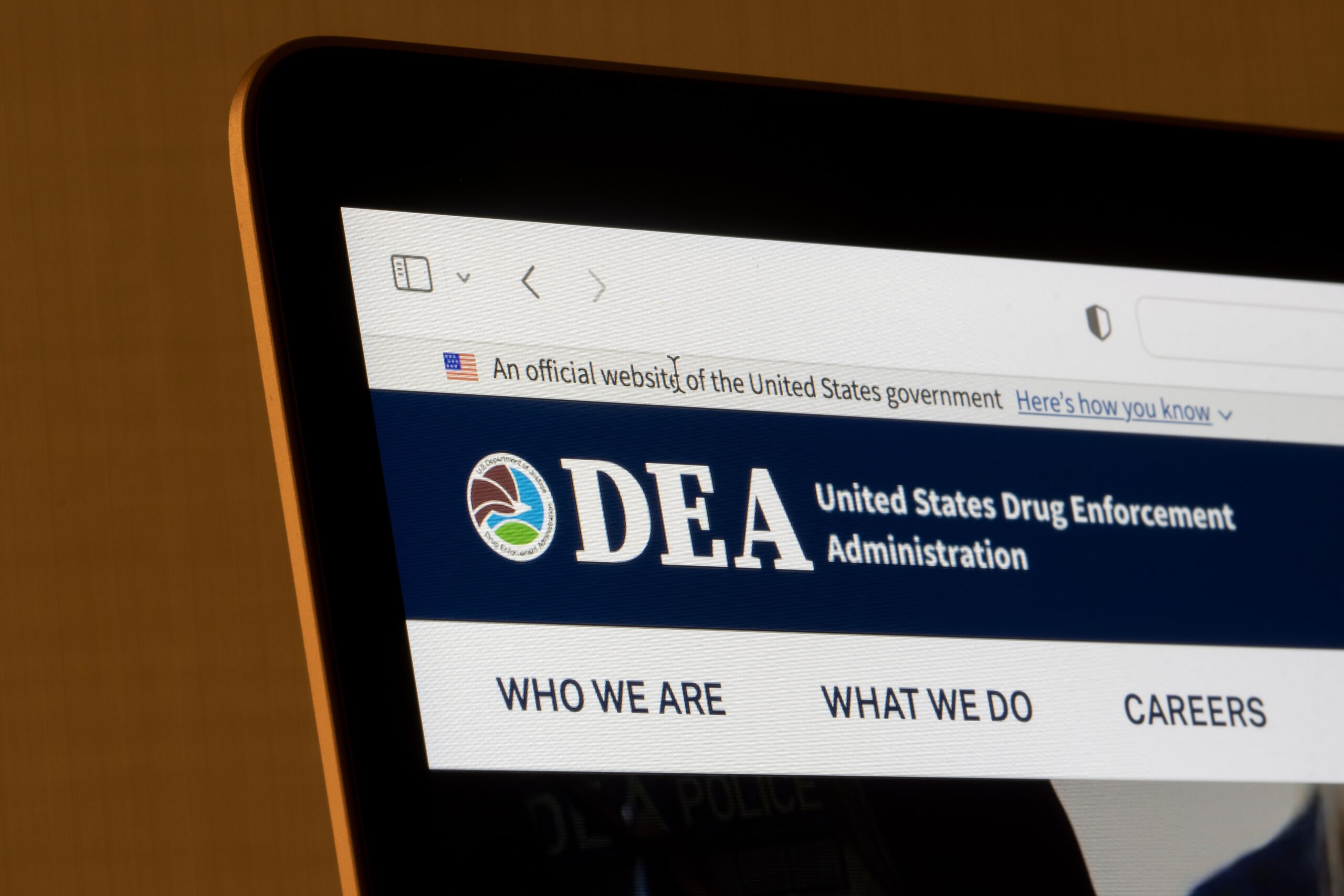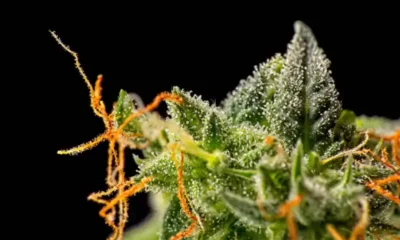Connect with us
Published
1 month agoon

We’re still collectively awaiting a final decision from the Drug Enforcement Administration (DEA) regarding the rescheduling of cannabis from Schedule I to Schedule III of the Controlled Substances Act (CSA). As the wait drags on, the agency is attempting to clear up some “misperceptions” surrounding the way it navigates the rescheduling of drugs.
The topic came up on the most recent episode of the DEA’s podcast, “Prevention Profiles: Take Five,” in a conversation between Senior Prevention Program Manager Rich Lucey and DEA pharmacologist Buki Ebeigbe surrounding the cannabis rescheduling process, as first reported by Marijuana Moment.
The conversation marked the first-ever public discourse on the DEA’s analysis of cannabis as a Schedule I drug on the CSA. Despite this fact—and that the DEA has remained silent about their process of rescheduling since its acknowledgement of the U.S. Department of Health and Human Services (HHS) suggestion to reschedule cannabis—Lucey asserted that the DEA isn’t trying to keep the process from lawmakers or the general public.
“I just think it’s important for people to—again, going back to correcting misperceptions and really the issue of transparency and, by us even doing this podcast, just to help people understand the process,” Lucey said. “We don’t want it to necessarily feel as if it’s behind this shroud of secrecy, which I think then lends itself to this idea that it’s a whole arbitrary process.”
The HHS made its recommendation to the DEA to reclassify cannabis back at the tail-end of August 2023. While a recent analysis said that the DEA is 80% likely to make its final call in the next few months, advocates and lawmakers have expressed concern with the DEA’s lack of transparency as the agency makes its decision.
On the podcast, Ebeigbe confirmed that the decision is “in its process.”
“Once that information is compiled and that document is written—that eight-factor document is written—it’s reviewed through our internal process,” she said. “Ultimately, the administrator will make a decision on where to place it—whether to change it or whether to remove it or whatever.”
So where exactly is the DEA in the process?
Lucey said that the eight-factor analysis can take anywhere from three to six months to complete. Bear in mind that it’s been about seven months since the HHS first made its recommendation.
“I mean, it’s not like we’re going to be done in a week. It never happens that way,” Lucey said.
Given the length of time the DEA has spent so far on the decision, alongside the mounting pressure from the Biden administration that has maintained a more aggressive focus on reform and rescheduling in recent months, many are eagerly awaiting the final call.
Upon completing its review, the DEA is expected to publish its decision to the Federal Register for a public comment period—though Ebeigbe said that it is “an absolute unknown” as to whether or not these comments will play a role in the final decision.
Earlier in the interview, Ebeigbe said that the DEA reads “every single comment” and must respond publicly, adding that it’s possible the agency will schedule a hearing after the public comment period in case anyone wants to share testimony “on a larger scale.” She also rejected the notion that the DEA’s process is “arbitrary,” affirming that the DEA’s processes and decisions must all be “legally defensible.”
There doesn’t seem to be any clear consensus on what decision the DEA will ultimately make.
Some critics of the move have questioned whether rescheduling would deem the U.S. out of compliance with United Nations (UN) Single Convention. The argument has largely been adopted by GOP politicians, with three Republican senators echoing the sentiment to DEA Chief Anne Milgram earlier this week.
However, multiple sources, including a group of lawyers in a collective legal opinion, have argued that international drug treaties will not interfere with cannabis rescheduling should it happen.
Unnamed sources who spoke with The Wall Street Journal also claimed that certain DEA officials were against the move to reschedule, questioning the HHS findings on the safety of cannabis and its medical potential.
Though, if Lucey’s estimate is correct, we shouldn’t have to wait much longer to see how the cards finally fall.


Despite City Efforts, Hemp Shops Posing as Dispensaries Prevail in Las Vegas


Cannabis Community, Investors React to DEA Decision To Reschedule


Georgia Governor Signs Bill Establishing Licensing Requirements To Grow Hemp


Study: Psilocybin Enhances Meditation


Ohio GOP Lawmakers Debate Adult-Use MJ Priorities, Eye June for Regulation Approval


Taylor Swift Puts Narcotics Into All of Her Songs on ‘The Tortured Poets Department’
